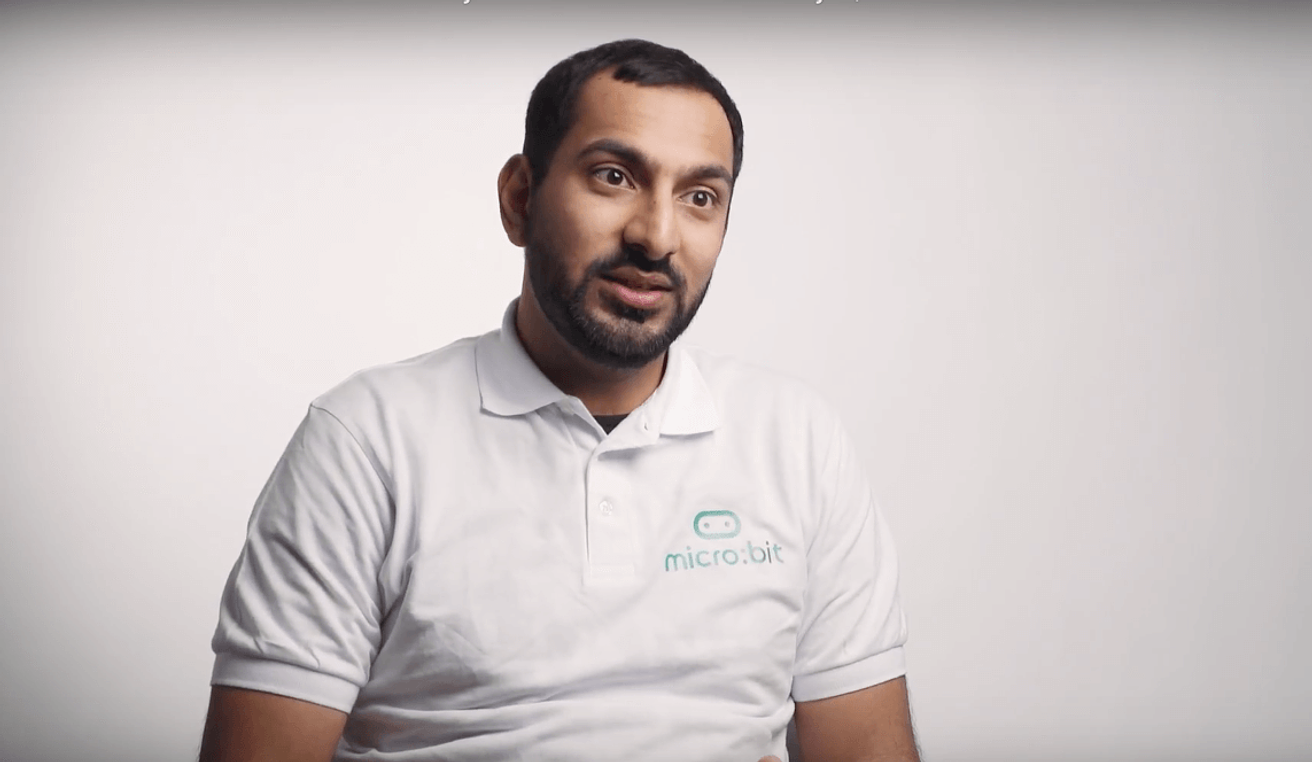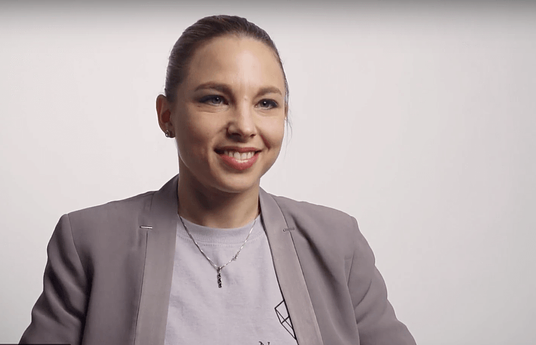Hammad Nazir
Hammad Nazir is a teacher of Computer Science in the UK. Here he shares with us his thoughts on the future of learning and what makes an exciting classroom environment.
Do you feel that the current way we are educating children fully prepares them for the needs of the 21st century?
I think the new changes have become a step forward towards that but I think there’s a lot more work to do to get there. It’s about making education relevant to the needs of the society out there. Digitalization, I think that has a key role for making that happen because it’s more hands-on and students can actually see the effects of the power of technology and they can take that away with them.
What is the role of the teacher?
The role of a teacher is to empower and inspire young children to make them believe that they can achieve the best of their own ability and allow them to be independent and enable them to make their own life choices and make a successful future.
I think teachers should have more opportunities to collaborate and talk to each other, as together you bounce off ideas, share ideas, share good practice and learn from each other’s mistakes and, more importantly, you yourself feel like you are part of a bigger team and you are empowered – I think it inspires you to inspire others.
If you’re working alone, that isolates you and sometimes you feel like it’s just you in that classroom and there’s no way out – which can be quite daunting.
What do you feel the most exciting or effective learning environment would be?
The most exciting and effective learning environment would be a safe, warm and welcoming environment where students can walk in and be enabled and pushed to work independently, to solve problems by themselves and having the belief, self confidence and self-esteem to do that. I reckon that it should be in a nice open space, where students are allowed to freely solve problems without the fear of failure. I think students should be allowed to fail and understand that it's ok to fail and it’s about what you do next to move on from that and to solve the problems.
Do you think standardized testing is the most effective way to judge learning?
I think in certain aspects of learning, it can be effective, but at the same time I don’t think it is – you’ve got different types of learning, with different learning needs and different goals. It’s about meeting the needs of these students and being able to enable a situation where they succeed in their own life goals instead of a general national benchmark where they are compared by other people. I think that could put students off, if they don’t do well in one test, that could put them off and have a knock-on effect on their own self confidence and self-esteem.
What role do you think government should play in education?
I think the government should actually go into schools and actually look at the teachers and look at the everyday pressures that the teachers are in, the demands of meeting deadlines and constant excessive marking. I think they should actually look at the reality and make a realistic assessment on how you can improve results, learning and more importantly enable a child to be successful and happy and ready for the future.
I think the teaching profession should be given a bit more credibility and teachers should be trusted to do it in their own way. Every teacher is different, every child learns differently and you can’t just make everyone do it the same way, you won’t get the same results. I think if change was from the ground up, it would be more effective and it would have more of a meaning - you would get better results, better morale, you’d get people probably contributing more, you’d get more output from staff, because these are the people that are on the frontline. They see the everyday pressures and they know solutions and they could have really good ideas of how to move that forward, for example talking to teachers more, having a better network, having flexibility in learning and looking at the needs of each class and being allowed to adapt your style of teaching just so you can meet the needs of those students.
In your experience, can an innovation that works in one place work in another?
Yes, I think innovations can work pretty much everywhere. Innovations, obviously they give you the sense of excitement, they give you that mystery feeling and it’s also a hook.
Students can actually go away with these innovations, use them hands-on and actually visually see the outcomes of their learning. With the microbits, our students have programmed them - there’s 10 students and they’ve programmed 10 different things onto the same microbit. The same microbit is pretty much used in 10 different ways and each person has created it themselves. So, it’s that sense of ownership, as well.
What was your favorite moment or experience in your own K-12 education?
In my own education, my favorite moment was when my English teacher was so welcoming and warm and invited students to share ideas and talk and collaborate. She welcomed as many questions as a student could possibly ask. For me, that was absolutely amazing and it was so useful in my life because I didn’t feel afraid of asking questions and solving problems. In these lessons, I never would have walked out confused or unsure about something because I would have asked.
Another favorite memory was at one point I was really worried about my exams and I went to my English teacher and she organized a time after school - she spent time there without me feeling guilty or anything like that and she happily went through all the skills and as a result it made my life in the exam a lot easier.
The next 100 years of education should… move with the time and technology and innovations - and be ahead of the future. For example, it’s all about programming and technology - We need to look at the curriculum and look at what students actually need, what life skills do they actually need, and replace the current education with that so it suits their need.
It would make the students see that education is relevant and it would make them want to learn, instead of having the curriculum content based on certain exam boards and certain agendas.


